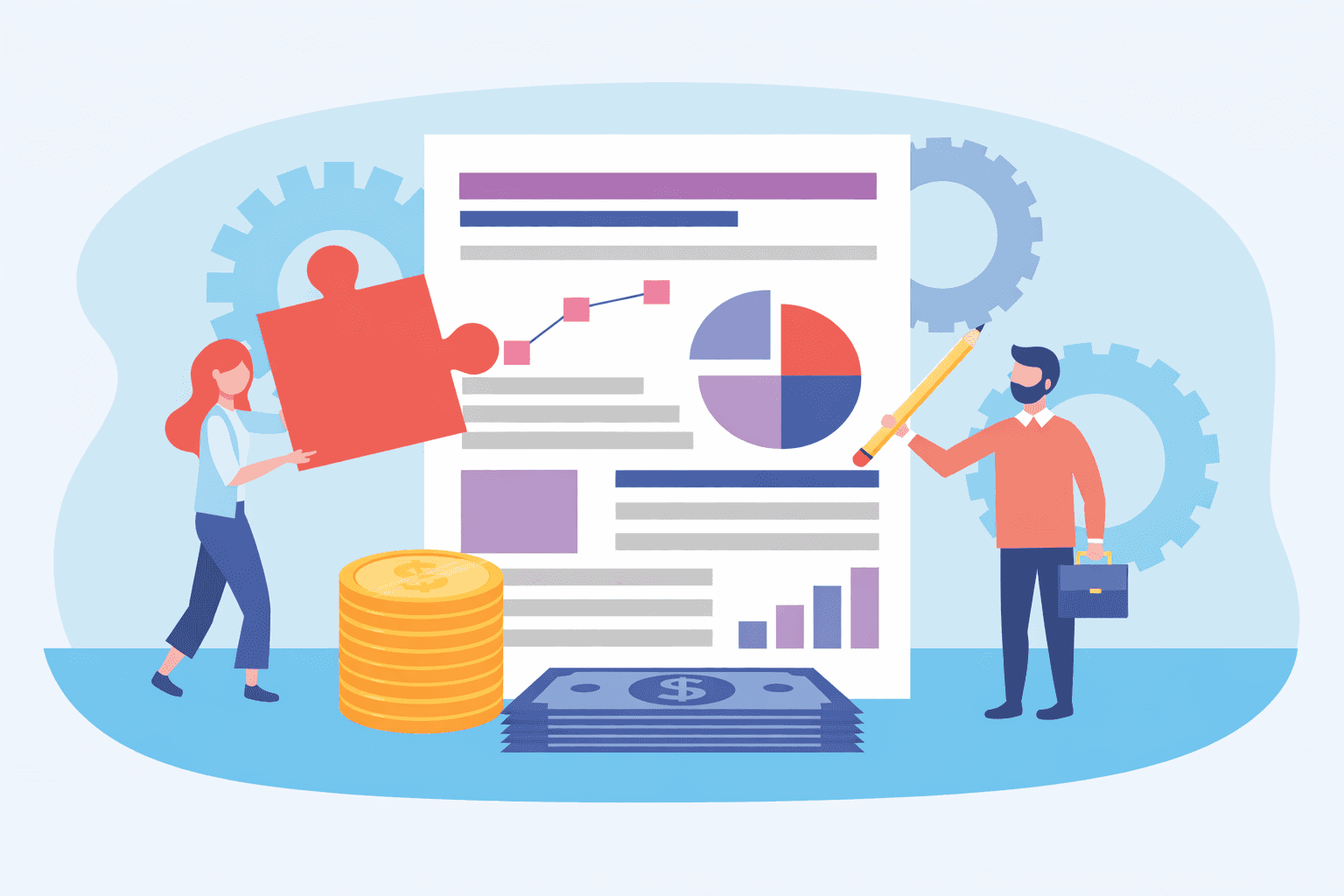How Proper Bookkeeping Can Legally Reduce Your Business Taxes and Maximize Deductions
A penny saved is a penny earned. While managing taxes may not be the most thrilling aspect of running a business, implementing smart bookkeeping practices can significantly boost your bottom line. Streamlining your financial processes and staying informed about tax laws can reduce your tax burden and unlock substantial small business tax savings, freeing up capital to invest in your business’s growth.
As a business owner, one of your primary financial goals should be minimizing your tax burden—legally and ethically. Proper bookkeeping isn't just about staying organized; it's a strategic approach to identifying, tracking, and maximizing every possible tax deduction available to your business. When implemented correctly, effective bookkeeping practices can significantly reduce your tax liability while keeping you compliant with tax regulations.
Why Bookkeeping Matters for Tax Savings
Before diving into specific strategies, it's important to understand the fundamental connection between bookkeeping and tax savings. Many small business owners leave money on the table simply because they don't have systems in place to capture all legitimate deductions.
Good bookkeeping provides:
Complete and accurate financial records
Easy identification of tax-deductible expenses
Documentation to support claimed deductions
Clear separation between personal and business expenses
Early warning of potential tax issues
According to the IRS, poor record-keeping is one of the top reasons small businesses face audits and lose out on potential deductions. Let's explore how you can use bookkeeping strategically to minimize your tax liability.
Essential Bookkeeping Practices for Tax Optimization
Implement a Dedicated Business Expense Tracking System
The foundation of tax-saving bookkeeping is a reliable system for tracking all business expenses. This might include:
Cloud-based accounting software like QuickBooks, Xero, or FreshBooks
Mobile apps for capturing receipts on the go
Business credit cards used exclusively for business purchases
Regular reconciliation of accounts (weekly or monthly)
Pro Tip: Look for accounting software that automatically categorizes expenses according to tax deduction categories, saving you time and reducing the risk of missed deductions.
Categorize All Business Expenses Accurately
To be deductible, a business expense must be both ordinary and necessary. An ordinary expense is one that is common and accepted in your industry. A necessary expense is one that is helpful and appropriate for your trade or business.
Accurate categorization is essential for ensuring you take full advantage of available deductions. Common categories include office supplies, utilities, travel, and meals. However, specific deductions vary based on the type of business you operate.
Here are some deductions based on the type of business you operate:
Home-Based Businesses:
Deductible: Home office expenses, including a portion of rent, mortgage interest, utilities, property taxes, and maintenance, if the space is used regularly and exclusively for business.
Non-Deductible: General home expenses that are not directly related to the business space.
Freelancers:
Deductible: Self-employment taxes and health insurance premiums.
Non-deductible: Personal expenses that don’t specifically relate to business activities.
Retail:
Deductible: Cost of goods sold (COGS), including materials and direct labor costs.
Non-deductible: Expenses that do not directly affect the production or selling of goods, like indirect overhead.
Construction/Trades:
Deductible: Tools, equipment, and vehicle expenses that are used for business purposes.
Non-Deductible: Costs related to commuting or personal use of vehicles or equipment.
Food & Beverage:
Deductible: Ingredients and marketing expenses specifically aimed at promoting the business.
Non-Deductible: Items unrelated to food preparation, service, or personal meals for business owners unless in a business context (like a business meeting).
Service Industries:
Deductible: Professional fees, training costs for professional development, and other direct business expenses.
Non-Deductible: Costs incurred for services not rendered directly to clients or unrelated to the business's operational needs.
Travel:
Deductible: Business-related travel expenses such as transportation, lodging, and meals (subject to the 50% limit on meals).
Non-Deductible: Personal vacation expenses or any part of a business trip that is extended for personal recreation.
Home Service Providers (e.g., HVAC and Plumbing):
Deductible: Expenses related to job site travel, tools, equipment, and maintenance costs. Keeping detailed receipts and documenting every relevant transaction ensures these deductions can be claimed accurately at tax time.
Non-Deductible: Personal use items or any expenses not directly related to the job site work.

By maintaining detailed records and understanding the specific deductions available to your type of business, you can optimize your tax filings and potentially reduce your tax liability significantly.
Separate Personal and Business Finances
Commingling personal and business finances is one of the most common bookkeeping mistakes that lead to missed deductions and potential audit red flags.
Best practices include:
• Maintaining separate business bank accounts
• Using dedicated business credit cards
• Paying yourself a salary or owner's draw
• Documenting any personal assets used for business
4. Choose the Optimal Business Structure
Your business structure significantly impacts your tax situation, and good bookkeeping helps inform these decisions:
• Sole Proprietorship: Simple but offers fewer tax advantages
• LLC: Flexible taxation options without corporate formalities
• S Corporation: Potential savings on self-employment taxes
• C Corporation: Benefits for certain high-income businesses
Each structure has different bookkeeping requirements and tax implications. Reviewing your financials with a tax professional can help determine if your current structure is optimal.
Advanced Bookkeeping Strategies for Maximum Tax Savings
1. Strategic Timing of Income and Expenses
With proper bookkeeping systems in place, you gain more control over when income and expenses are recognized:
Income Deferral:
• Invoice clients in early January instead of late December
• Delay year-end bonuses or commissions
• Postpone service completion until the new year
Expense Acceleration:
• Make planned purchases before year-end
• Prepay deductible expenses like insurance or subscriptions
• Pay outstanding business bills before December 31
This strategy works particularly well for cash-basis businesses, allowing you to shift income into higher or lower tax years strategically.
2. Retirement Planning Integration
Proper bookkeeping helps identify opportunities for tax-advantaged retirement contributions.
The key is having accurate financial data to determine:
• Maximum allowable contributions
• Optimal timing of contributions
• Cash flow implications of various retirement options
3. Technology Investments and Section 179
Detailed equipment and asset tracking allows businesses to maximize depreciation deductions:
• Section 179 Deduction: Allows immediate expensing of certain equipment up to $1,160,000 (2024 limits)
• Bonus Depreciation: Additional first-year depreciation options
• Regular Depreciation: Strategic allocation of costs over the useful life of assets
Good bookkeeping ensures these opportunities aren't missed and provides documentation to support your deductions.

Small Business Bookkeeping Tips for Tax Efficiency
1. Create a Tax Calendar
Develop a tax calendar that includes:
• Estimated tax payment deadlines
• Filing deadlines for various tax forms
• Quarterly bookkeeping review dates
• Annual tax planning sessions
2. Leverage Technology
Modern bookkeeping tools offer tax-saving features:
• Automatic mileage tracking apps
• Receipt scanning and categorization
• Cloud storage for tax documentation
• Integrations with tax preparation software
3. Monitor Key Tax Metrics
Good bookkeeping allows you to track metrics that impact your tax situation:
• Profit margins by product or service
• Quarterly income projections
• Business expense ratios
• Cash flow patterns
4. Work With Professionals
Consider working with:
• A bookkeeper for regular maintenance
• An accountant for tax planning
• A tax attorney for complex situations
The investment in professional help often pays for itself in tax savings and reduced audit risk.
Common Bookkeeping Mistakes That Cost Tax Dollars
Even well-intentioned business owners make bookkeeping errors that result in higher taxes:
1. Missing receipts for deductible expenses
2. Improper categorization of expenses
3. Failing to track business mileage
4. Not claiming home office deductions
5. Overlooking depreciation opportunities
6. Inconsistent record-keeping practices
7. Mixing business and personal expenses
8. Missing filing deadlines for tax incentives
Proper bookkeeping prevents these costly mistakes and provides an audit trail if questions arise.
Conclusion: The ROI of Tax-Focused Bookkeeping
Implementing proper bookkeeping practices requires an investment of time and potentially money, but the return is substantial:
• Reduced tax liability through maximized deductions
• Minimized audit risk through proper documentation
• Strategic tax planning opportunities
• Better financial visibility and business insights
• Reduced stress during tax season
• More time focused on growing your business
The most successful small businesses view bookkeeping not as a necessary evil but as a strategic tool for legal tax reduction. By implementing the practices outlined in this article, you'll be well-positioned to minimize your tax burden while maintaining full compliance with tax regulations.
Remember that tax laws change frequently, so staying informed and working with qualified professionals remains essential for optimizing your business tax situation. With proper bookkeeping as your foundation, you'll have the financial clarity needed to make tax-smart business decisions throughout the year.

At FinOpSys, we specialize in tax-focused bookkeeping that empowers small business owners to save more, stress less, and stay ahead of ever-changing tax laws—so you can focus on growing your business with confidence.
Share blog:










